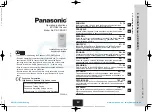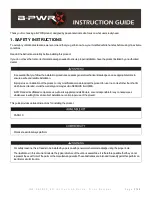
A
A-4
Basics of Imposition
Notice that:
• The folds subdivide the sheet into areas representing pages in the final booklet.
• Page numbers do not appear in book-reading order.
• Some page numbers are upside down.
Some pages must be printed upside down on the sheet in order for them to appear
right-side up in the final booklet, and pages must also be printed out of numerical
sequence on the sheet in order for them to appear in numerical sequence in the final
booklet.
This process of folding paper and numbering pages to approximate the finished piece
is called making a folding model, and it is a common first step in planning a print job.
The folding model provides valuable information about page placement, which you
can use to create a plan, or sketch, of how pages are placed on the sheet. This plan is
called a layout.
DocBuilder Pro frees you from the tedious and error-prone process of creating accurate
physical models of the imposed book in order to lay out pages. With DocBuilder Pro,
you simply open the source file to be imposed and specify how many rows and
columns of pages to image on a sheet. DocBuilder Pro simplifies this process even
further by providing predefined layouts for common impositions such as booklets and
brochures. You can also save your own custom layouts for easy reuse.
Printer’s marks
In addition to specifying the placement of pages on a sheet, the layout also specifies
how the finished sheet will be cut and folded. For example, the layout specifies whether
the large finished sheet is folded and cut to create a booklet, or simply folded (and not
cut) like a map.
















































